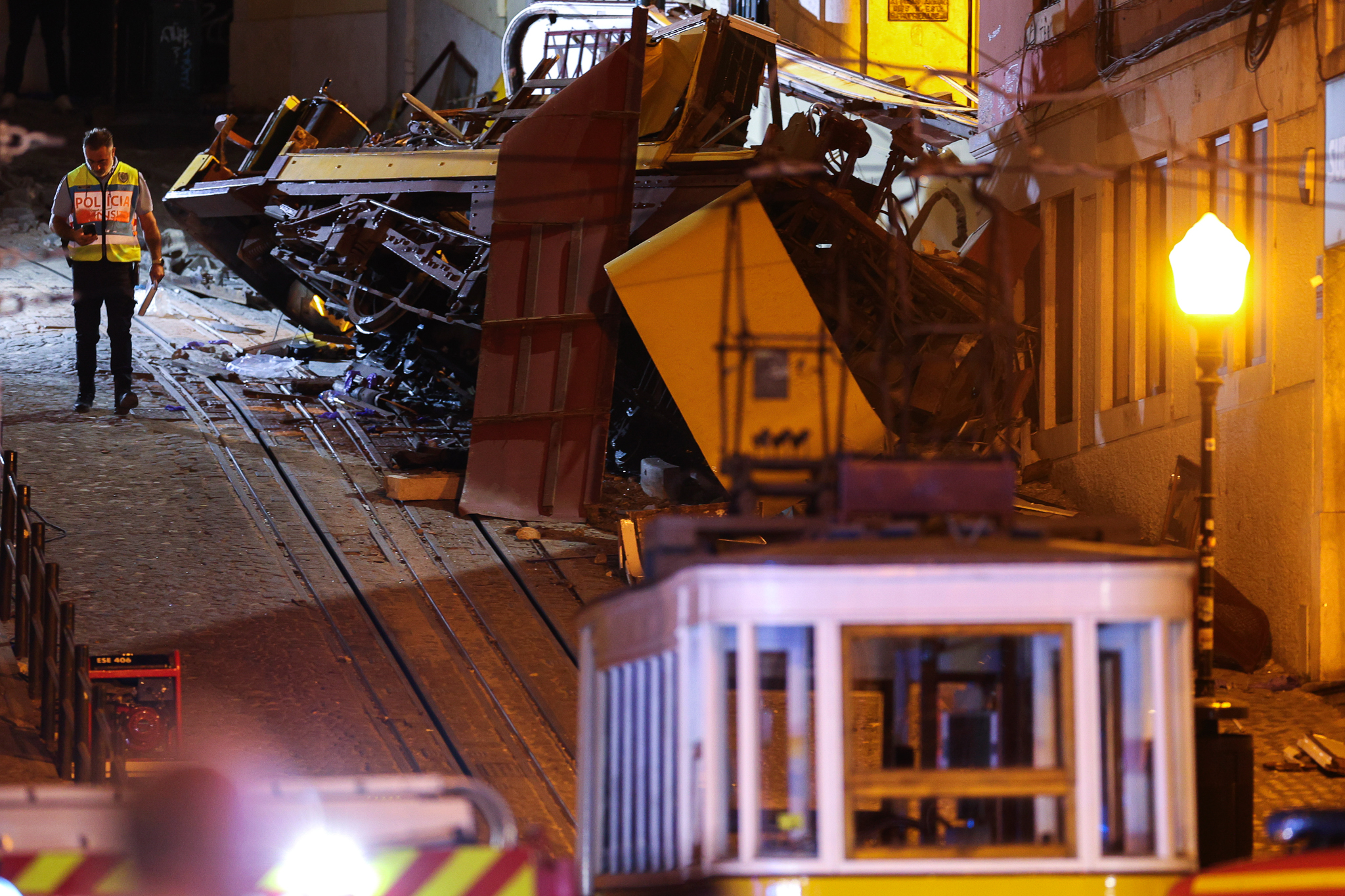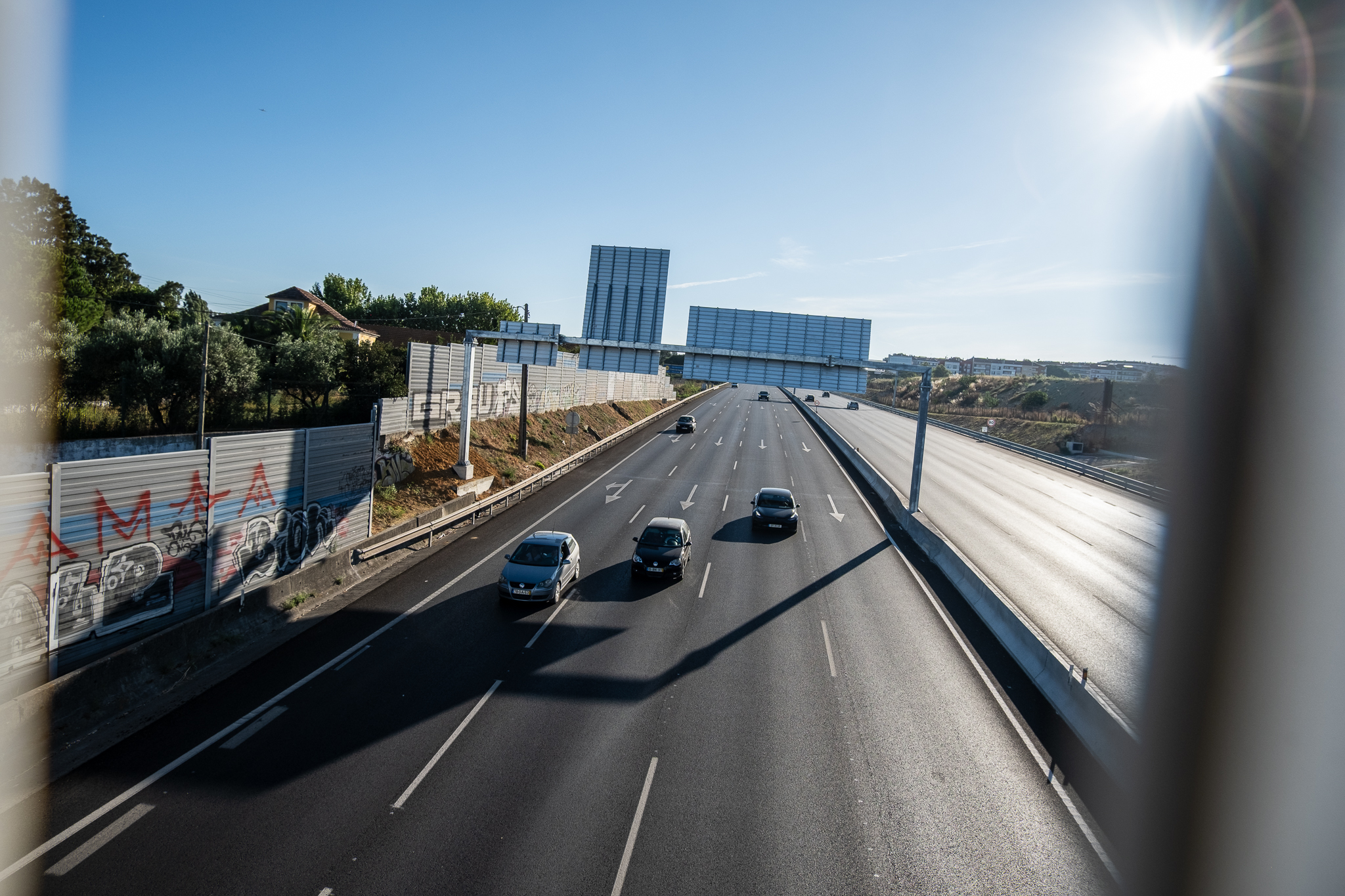Opinion.
Unfortunately, the affection we may feel for CP doesn't pay the bills or move passengers. It's time to launch a serious debate about what it will be like to travel by train in Portugal in 2030.

I'd like to make a prior noticeIt is undoubtedly a good sign that in recent years the public debate has paid more attention to the rail sector and the train as a structuring mode of transport for our mobility. However, I think the time has come to talk seriously about the (much) that we have been pushing down our throats.
At the beginning of April, we learned about the government program which should guide the transport sector's policies for the coming years, and covered in the same document, there is one sentence that should be of particular interest to us:
"Create a new operating model for rail passenger transport, decentralizing the management of transport services of an eminently local nature, as well as substantially reducing the barriers to entry for new competitors."
- program of the 24th Constitutional Government
This apparent small detail in the program is actually the result of a long debate about the way the country has been managing its passenger rail service. Let's break it down.
The lack of competition
For the overwhelming majority of Portuguese, taking the train is synonymous with CP - Comboios de Portugal. The public operator, which in recent decades has been the hegemon in the provision of the service, reaches 2024 and the hands of the new government in a frankly delicate position.
After a historic struggle for the most basic justice, CP has succeeded finally a public service contract and the cleaning up the brutal debt after years of operating without being compensated for her work. These small great victories, although notable, cannot hide other harsh realities that are making themselves heard. In fact, despite this historic milestone, which enabled CP to achieve its first profitable results in 2022 and 2023The company is at a point of wear and tear and lack of coordination that should worry any citizen who has ambitions for the future of the railroads in Portugal.
In fact, the public service contract that CP currently has (drawn up by the previous PS government), is a two-pronged stick. On the one hand, it helped CP to clean up its financial situation by being able to operate in a minimally sustainable way; on the other, it practically handed the company a monopoly position over the service.
At the time, hardly anyone raised any major questions about this - also because the general public was so used to CP having this near-monopoly on the service. However, this "handing over on a plate" has hardly proved positive for taxpayers, users and, ultimately, CP itself.
According to European Union guidelines (which reflect nothing more than the most basic common sense), public transport services (in this case, rail) should always be subject to public tender. In other words, the state, as the contracting authority, must search the market for an operator, public or private, who will provide a pre-defined and thought-out set of services, for which it will reward the operator financially, penalizing him in the event of non-compliance with the contract.
Well, not only did the Portuguese state not do this when it handed over the almost monopolistic service to CP, it doesn't even deign to do so for the only exception to this monopoly: the suburban service on the 25 de Abril Bridge, between Lisbon and Setúbal, which is handed over to Fertagus, a company belonging to the Barraqueiro group that has seen its contract successively renewed over and over again without a call for tenders.
The new government is therefore quite right to say that there has in fact been no competition or any kind of incentive for new players to enter the passenger rail sector. Contrary to what a number of stubborn people are babbling about gauges, the real obstacle to the entry of new players in the national market has been the narrow-minded and protectionist vision that the Portuguese state has applied by never seriously reviewing the rail service it has contracted.
Scarcity of resources
CP has thus operated its contract under the apparent protection of the state, but from a certain point of view, more like a kind of captivity. In fact, for many years CP has been living under a obvious lack of resources - financial, human or even physical. The company's staff is aging. Maintenance is carried out, with parts arriving in dribs and drabs, in workshops where it rains inside. Passenger satisfaction is reflected in the spectacular operating results of Rede Expressos and Flixbus in recent years, which, faced with a stagnant and unreliable CP supply, have been delighted by growing demand.
On the suburban scene, the constant cuts due to breakdowns, interspersed with the periodic but ever-present strikes by train drivers and inspectors, have eroded confidence in the service, to the point where the company has become a laughing stock. The record numbers of cars entering Lisbon and Porto every day will corroborate what I'm saying (by the way, how many of you, dear readers, are aware that some timetables cut during the Troika era have never even been reinstated?)
The rolling stock is somewhere between old and very old. And due to the state's desire to save a few bucks, the new trains will only arrive in significant numbers at the end of the decade. It should be noted that even the new material will not allow for significant increases in supply, since it is mainly intended for the urgent replacement of the most worn-out fleets.
Even the hype and avalanche of propaganda surrounding the recovery of older rolling stock has proved to be a lot of nothing. The Arco carriages leave Guifões in trickles, and the program is well behind schedule. Not to mention the Intercidades coaches, which have been outdated for 15 years, and the first prototype for a refurbishment has been kicked to the back of the workshops for a couple of years. The only salvages are the Schindler carriages (which are actually historic equipment, but CP likes to sell them as a more retro regional service) and the 2600 locomotives, which are basically plugging holes in InterRegional services; and which occasionally save the Intercidades when a 5600 locomotive gives out.
Three important points
The CP can go with a smile on its face, but that smile is held back by wires. And this situation is not only a motto for rethinking CP, but a motto for seriously rethinking what kind of public rail service we want in Portugal.
First of all - and there's nothing political about this opinion - the monopoly should end. The Portuguese state simply cannot continue to hand over a service of this caliber, without any kind of serious oversight of the contract, to a tired, outdated company that is riddled with internal problems. Restructuring CP from top to bottom may be an option, but it doesn't rule out the service having to be contracted out under a concession model, through a fair and transparent tender in which other interested players can participate.
Secondly, the excessive concentration of the service in a single contract is also a problem factor. It doesn't make sense to mix services as different as suburban, regional and long-distance (Intercidades and Alfa Pendular) in a single contract. In areas with a high concentration of services, such as metropolitan areas, it should be the respective metropolitan transport authorities that define and coordinate the rail service (the end of the regional suburban units, announced a few years ago as a panacea to unite the company, has shown little or no results, apart from a few different stickers on the railways). head of the train).
Thirdly, the critical situation of the rolling stock, in addition to a massive investment by the state in its renewal effort, also requires rethinking the model of use. Since no one bidding for a concession is going to buy trains to operate them for a short time, a concession model has become commonplace throughout Europe in which the state or regional authority owns the rolling stock, leasing it to the winning operator for a price fixed a priori. In fact, we already have this model here, since Fertagus trains are indirectly owned by the state. (The question of whether maintenance is provided by a centralized state entity or by the operator already requires some analysis on a case-by-case basis, since it depends on the scale of the fleets owned).
What do I mean by all this? That our classic vision of dumping the entire burden of the rail service on CP is completely obsolete and the supposed reforms made in recent years seem to have only served to formalize some of its problems in writing and consolidate a sort of "armed arm of the trains", which sadly serves as a propaganda stunt in front of the cameras.
With the exception of the huge know-how accumulated in the area of maintenance (formerly provided by EMEF and then integrated into CP), it is difficult to see what is usable in CP's structure. The mostly obsolete rolling stock? Its small, outdated facilities? Operational management that trivializes delays and doesn't speed up problem solving?
Unfortunately, the affection we may feel for CP doesn't pay the bills or move passengers. It's time to launch a serious debate about what it will be like to travel by train in Portugal in 2030. It's not an easy reform to make, not least because the political debate has descended into the most elementary childishness and clubitisWith the most timid of reforms ready to be dubbed an attack on the public purse, precisely by the people who have squandered it to this point of ruin.
Some ideas
But anyway, here are some ideas that I've merely cooked up in my head:
- Maybe it's time we had a centrally coordinated service, but divided into more manageable execution units. On the one hand, Regional and InterRegional divided into North, Central and South units. On the other hand, suburbs governed in a decentralized way in Lisbon, Porto and Coimbra. Finally, Intercities reviewed and possibly subsidizing only those operating in more remote regions (Yes, why should the state pay someone to operate completely profitable services between Lisbon and Porto?)
- Maybe it's time to think of CP not as this strange aggregate of parts that try to form a company, but as a universal rail service brand with a uniform language, communication and ticketing throughout the territorywhich can integrate different regional operators;
- Perhaps we could rethink the old EMEF as this brute force which, through various decentralized hubs, manages to ensure the maintenance of the rail fleets spread across the country. And ultimately as a knowledge factory, allied to the promised new railway skills center, but without extraneous projects such as the "Portuguese Train", whose usefulness and relevance within CP have yet to be explained.
If we leave our trenches of fundamentalism aside, perhaps we can dream and think of a country where taking the train is a first choice and not some strange relic that we keep for those who can't afford a car.
Perhaps we can think of a country in which it is a pleasure and a source of pride to take the train, whether or not it has a spectacular "CP" logo on the side.







